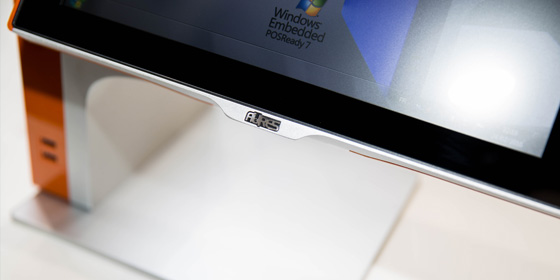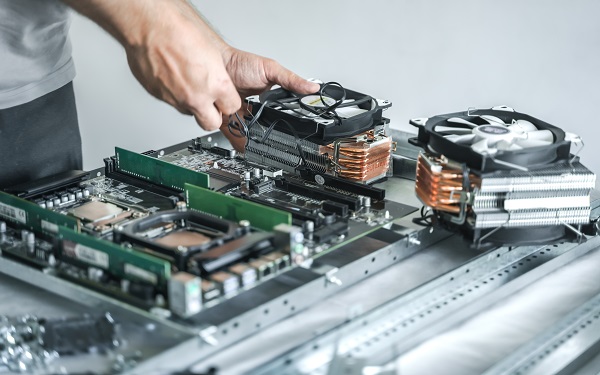Ah, technical specifications. Don’t you just love them? No? Well, you’re not alone. To a lot of people, specs represent a major barrier when it comes to technology.
As a business owner, you know you need all kinds of digitized and computerized systems just to get by these days. But when it comes to picking the right solutions, you’re hit with all these numbers and letters and coded abbreviations that might as well be a foreign language.
I mean, we can’t all be certified tech experts, can we? People just want solutions that work.
From our perspective as a POS hardware vendor, we understand how looking at a technical data sheet for one of our digital terminals can leave customers none the wiser as to whether it will do the job they want it to do.
That’s why we take the trouble to break capabilities and performance down into plain English. And we also have a team of technically trained agents on hand to offer honest, jargon-free advice about what will work best for your requirements.
But at the same time, technical specifications do matter. Stripping things back to first principles, they tell you how a terminal will perform in different environments. Whether you’re running a single checkout or 20, using basic sales software or a fully integrated retail management suite, operating a single local network or connecting multiple branches via a private cloud – all of these variables and more place different demands on your POS hardware.
Picking the right products matters to the speed, efficiency and reliability of your POS. It matters to delivering the right customer experience.
So with that in mind, here’s a basic breakdown of what you need to know about POS system requirements.
Processor
Also known as a CPU (for computer processing unit), the processor is like the engine of any computerized device. Just like the engine in a motor vehicle, the size of the processor determines two things – how fast the device will run, and what size workload it can handle (so how big and complex the apps it runs can be, and how many it can run at once).
The fact that so much POS software is run over the cloud these days means you don’t need CPUs to be as big and powerful as you do when running applications locally. Much of the processing workload is taken up by the servers in some far-off data center.
On the other hand, the trend towards running large suites of multiple applications – sales, inventory, accounts, CRM, ecommerce, business intelligence – across all POS hardware means you still need a solid amount of processing juice in every terminal. That’s why we offer most AURES terminals with Intel i3 or i5 CPUs as standard, offering processing speeds of 2.3 to 2.6 GHz – plenty to guarantee no lag even when running the biggest cloud-based POS suites.
Memory (RAM)
RAM is a measure of the short-term memory capacity of a computer. Unlike a disk drive (see below), RAM does not handle long-term or permanent data storage. Instead, you can think of it as being like a temporary in-tray where data related to current tasks is held, ready to be picked up and used again as and when needed.
Without RAM, a computer would have to keep going back to the beginning of every task to remember what it was doing, making everything painfully slow.
For that reason, like the size of processor, RAM plays a key role in the speed of a computer. AURES terminals come with 4GB RAM as standard, which is these days considered the benchmark for general office computing. But our latest terminals can be expanded up to 32GB RAM, which is more than most high-spec gaming PCs boast.
Why would you need so much for POS? The higher the RAM, the more applications you can comfortably run at once – although 8GB is generally plenty for running big POS suites. But higher RAM also supports faster, slicker connectivity between networked devices. For large deployments of POS terminals running heavy loads of retail software all day long, 16GB-plus is recommended.
Disk Drive
As mentioned above, a device’s disk drive handles long-term data storage as opposed to working memory. The most obvious use for a disk drive is to store files locally. So on your laptop or PC, you probably have lots of documents, images, maybe music and video files stored on the disk drive. It’s also where executable files for any software loaded onto that device is stored.
For a POS terminal, especially in the modern cloud age, the storage capacity of a disk drive is not actually all that important. It’s no longer very efficient or secure to keep lots of business-critical data, or software files, on individual machines.
However, speed of disk drive does matter, as this affects how quickly the processor can recover data it needs to work with at any given moment, which impacts on overall performance. Increasingly, disk drives are also used for virtual memory, which is like an extension of RAM and manages things like caching of web pages and applications. Again, speed of recovery is important.
For that reason, we now make AURES terminals with faster (and more energy efficient) solid state drives, or SSDs, as standard.




